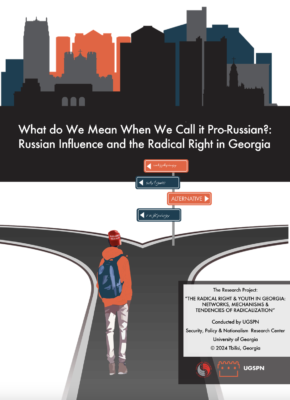
 What do We Mean When We Call it ...
What do We Mean When We Call it ...
While the Georgian radical right has been narratively labeled as pro-Russian almost since its widespread resurgence in recent years, this designation is still in need of deconstruction. Association with Russia is a multidimensional process, varying from value association to practical links and financial networks. While all of it could be considered contributive to the destruction of liberal democracy, the nuanced understanding of “pro-Russianness” within Georgia’s radical right is salient at least for the following reasons: it assists in identifying the core of the challenge and focusing solution-oriented discussion on the matter; moreover, it reflects on the indirect ways of influencing the youth’s ideological inclinations and positions on democratic values; and finally, it contributes to tailoring policy suggestions to the nuances of the issue.
The pro-Russian sentiments within certain political and non-governmental organizations in Georgia are evident, despite their reluctance to openly identify in this way. Following the conceptual framework, those entities falling under the pro-Russian category exhibit distinctive features such as a marked anti-Western stance, strong pro-Russian rhetoric, viewing the West as a primary threat, considering Russia a civilizational choice, and advocating for military neutrality or alignment with Russia. Their narratives, while fitting all four points of the pro-Russian type within Silagadze’s framework, extend further to underscore a shared perspective. This perspective emphasizes that dialogue with Russia stands as the sole pragmatic path forward, representing the cornerstone for addressing pressing issues, notably the resolution of the long-standing challenges posed by the occupied territories of Abkhazia and South Ossetia. While not explic- itly self-proclaimed as pro-Russian, their alignment becomes evident through an analysis of their discourse.